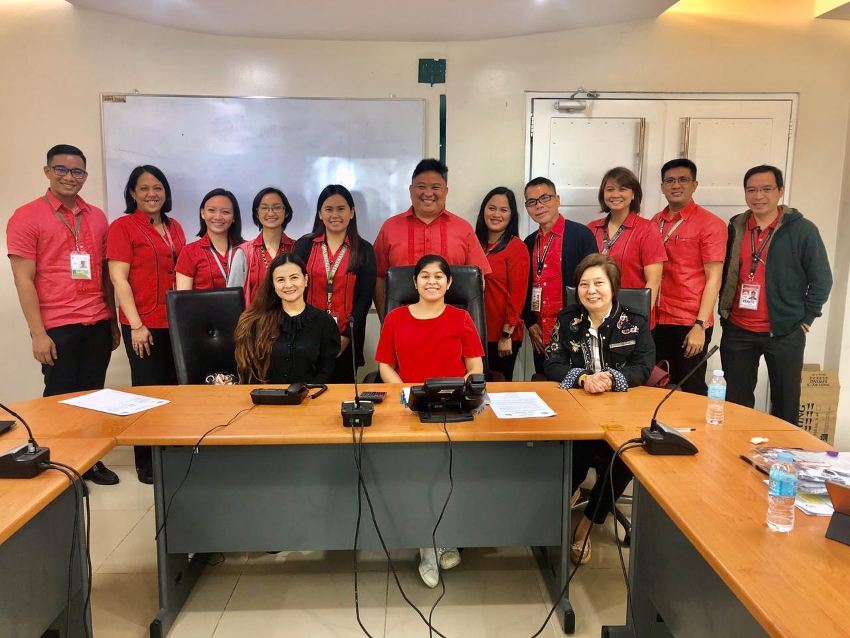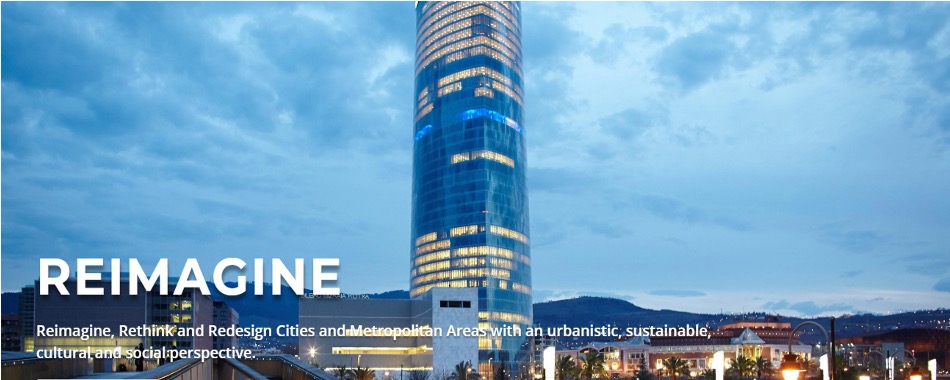We interview Kate Teehera ASEAN Regional Director for Bilbao Urban & Cities Design

After several visits to Philippines we are sure that the fascinating urban transformation of Bilbao Metropolitan Area can inspire and match Philippine cities and urban area´s big challenges and expectations.
In a country formed by 7.100 islands infrastructures are scarce, which boosts the cost of economic activity. Furthermore, the main risk they face is increasingly frequent natural disasters, mainly in the form of typhoons, which is why projects to combat the effects of climate change are beginning to be developed.
How did you start collaborating with Bilbao Urban & Cities Design Group and which is your role?
I met Xabier Arruza in one of his trips to Philippines and after listening about Bilbao urban transformation and the expertise of the connoisseurs and the group of companies from Bilbao Urban & Cities Design, I was trully convinced that this knowledge could be apply sucessfully in Philippine cities
We share the same interest in business development related to Real Estate and urbanism, starting a collaboration to find business opportunities first in Philippines and later in surrounding countries. That´s how I became Director for ASEAN Market.
What are the most significant challenges that Philippines cities face?
There are a number of underlying structural issues affecting urbanization in the Philippines, such as the country’s archipelagic geography which creates divisions in connectivity both within the country and to external markets; and, in turn, has negatively affected urban-led growth; or the country’s high exposure to natural hazards, particularly flooding and earthquake risks, all of which exacerbate urban management challenges.
Beyond these key structural issues, fragmented institutional arrangements for urban development and metropolitan governance, and major shortcomings in land administration and management avoids an appropriate urban planning.
Currently much of the cities and urban environments are far from the paradigm of being sustainable and efficient places. What do you think are the topics that you are not betting enough on in Philippines?
The Philippines is one of the fastest urbanizing countries in South East Asia and the Pacific. This could bring many opportunities for growth and poverty reduction.
However, the Philippines has had a spotty record of urban planning. What started out as beautifully master-planned cities generations ago, have ended up as cities characterized by congestion and traffic, little or poor access to mass transit, few open spaces, parks, and public spaces, and many blighted and derelict sections.
Cities like Metro Manila need to ensure that urban growth is supported by adequate infrastructure, such as adequate power, water, roads, transport systems, flood control, and waste management, to name a few.
In the midst of the technological revolution, how important is data management to you when it comes to improving the efficiency of urban services?
Collection, management and analysis of data is crucial and essential. It is necessary to know the starting point and the current state of the city to be able to know the dimensions of the possible problem and, thus, be able to propose improvement actions and effective solutions according to the characteristics of each situation.
In this way, better results will be achieved and, in addition, its effectiveness can be evaluated by taking data before, during and after the implementation of the actions and measures established.
A good and recent example of this is that, thanks to the existence of data, various studies have found a possible relationship between air pollution and the severity of symptoms of COVID-19.
Mobility is one of the main concerns in the big cities of Philippines. What would you suggest to improve it?
One of the main problems in the Philippines remains the shortage of public revenue, which prevents the implementation of social policies and investments in infrastructure necessary to develop the country. Lack of infrastructure increases the cost of economic activity and prevents taking advantage of the potential of other sectors such as tourism. To cover this deficiency without resorting to higher taxes, the promoting public-private partnerships is essential.
There are several ways we can explore to solve or improve mobility challenge. We can work on a few things – additional road capacity through landscaping and development, traffic management measures through parking restrictions, effective public transport service, promoting bicycle (creating a space for them on major roads), encouraging walking ( providing safe walk paths), trip reduction programs (giving commuters incentives to reduce their vehicle trips) which includes ride sharing, creating subways, more trains.
Are the cities working to reduce inequality, one of the biggest urban concerns?
In the Philippines, where more than a quarter of the country’s population lives below the poverty line, economic and social inequality is a major problem. The Philippines has one of the highest rates of income inequality in the world, and unless action is taken, the gap will continue to widen.
And this problem its reflected specially in the cities and urban areas.
The government of the Philippines is working to expand access to health care, education and land ownership among the country’s poorest families, but the road to recovery and improved equality is long.
Which are in you opinion the main business oportunities for Basque companies related to the market of Smart Cities and Urban Solutions in Philippines?
Basque companies would be of great help to countries in Asia – Philippines perse. Basque is known for different areas of urbanism, architecture, engineering, environment, energy and mobility. Can surely work on redesigning cities through it’s competent strategies.
The enriching experience gained during that award-winning Urban Transformation of Bilbao may serve to inspire new urban solutions in Philippine cities.
As we previously mentioned, lack of infraestructures is one of the main gap of the country, so big infra Basque Groups have lot´s to do in Philippines.
Furthermore, there is a strong historical roots between the Basque Country and Philippines.
The descendants of those Basque families of settlers and emigrants from the first waves, form today some of the main business corporations in the country and could play an important role as a gate of entrance to this part of the world for Basque Companies.
Basque families like Ynchausti, Aboitiz, Ayala or Elizalde, settled in the country, funding the most important companies in Philippines.
Final Comments
We firmly believe that the enriching experience gained during that award-winning Urban Transformation of Bilbao may serve to inspire new urban solutions in Philippine cities.
Bilbao Urban Design & Cities professionals from different areas such as urbanism, architecture, engineering, environment, energy efficiency, and mobility are strongly engaged with more sustainable and efficient urban models; what matches perfectly which Philippine cities need nowadays.
Open so to find opportunities to collaborate in the ambitious infraestructura and cities developments plans throught the country.


Recent Comments